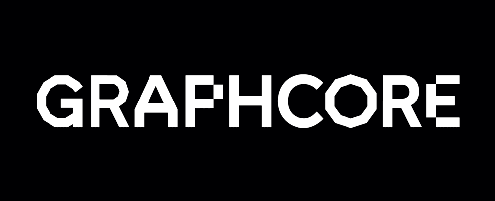Graphcore Attracts BMW & Microsoft Funding
Article By : Nitin Dahad, EE Times

Now valued at $1.7 billion, following latest funding round
LONDON — UK-based developer of machine intelligence processors Graphcore announced a new round of $200 million in funding, including investment from BMW and Microsoft. The deal — which brings Graphcore’s total funding to $300 million — values the company at $1.7 billion.
The intensive computation requirements of the autonomous vehicle market make an ideal fit for Graphcore. With automakers launching cloud connected services, the demand for processing power and intelligence will grow, and manufacturers will no doubt be looking for efficiencies from the hardware platforms in the car as well as the cloud.
Nigel Toon, CEO and co-founder of Graphcore, told EETimes that the company currently employs 200 people, and the funding will enable it to scale up to double that size in 2019, and double again by the end of 2020.
“Machine intelligence marks the start of a new age of computing which needs a radically different type of processor and software tools,” Toon said. “This new, fast growing market creates the opportunity for Graphcore to build a major global technology company that can help innovators in AI achieve important breakthroughs.”
Graphcore said it has already started shipping first products to early access customers and generated first revenues this year, just two years after the company was founded. It also claimed high volume production is now ramping up to meet customer demand for its IPU PCIe processor cards. Graphcore said its IPU is designed specifically for machine intelligence training and inference and delivers an increase in speed of 10x to 100x compared to today’s hardware.
This latest round of funding will enable Graphcore to execute on its product roadmap, accelerate production and expand the company’s global footprint. It will also hire new engineers at its headquarters in Bristol, UK, and at its other offices in London, Oslo, Silicon Valley, and at new offices it is planning to open in Beijing and Taiwan.
We asked Toon whether the next step for the company will be an IPO to enable an exit for some of the early investors, but he did not want comment on the timeline for this, recognizing that investors would be looking for an exit, but also emphasizing that the company is still in its growth phase and there is still work to do to scale up.
The AI chip market has seen a huge amount of activity this year, with a number of companies seemingly picking up momentum, including Cerebras, Graphcore, Wave Computing, Horizon Robotics, Cambricon Technologies and DeePhi. According to Woodside Capital Partners, the AI chipset market is expected to grow to$43.3 billion in 2023 from $6.8 billion in 2017.
In the last few weeks, it is reported that Chinese company Horizon Robotics raised up to $1 billion, valuing the company at up to $4 billion. Earlier this year, Cambricon Technologies (also Chinese) was valued at $2.5 billion.
Woodside says AI semiconductors are entering an inflexion point – semiconductors based on Moore’s Law have been pushed to the limit, and expansion of data is much faster than the data processing capabilities of the chip, even if process technology is getting down to 7nm nodes.
According to Woodside, Darpa is driving a “third wave” of AI that emphasises self-learning AI, involving contextual adaptation and characterizing the real world, and generating contextual models to drive decisions.
Topping the $300 million funding mark is a significant achievement for a European semiconductor startup, making Graphcore a true European semiconductor “unicorn” at a time when most of the large VC deals in Europe tend to go to software and internet companies.
We spoke to one of the veterans of the European tech investor ecosystem, Jean-Michel Deligny, a senior advisor to Silverpeak, a technology investment bank, and personally involved in transactions like the most recent funding rounds for UltraSoC and Kalray. Deligny said this is a fantastic outcome for a European company, adding that of the 53 AI startups listed in Woodside Capital’s recent report, only eight are based in Europe. He also pointed out that the wave of financing deep learning and hardware accelerators is an investment bubble, and the new frontier to watch is the third generation of AI, with neuromorphic AI companies, such as Vicarious in the U.S., or AnotherBrain in Europe.
Deligny said that while Europe lost the battle in big data to the U.S. and China, it is intent on playing a key role in developing the next frontier in AI — the tech hardware independent of big data. “While deep learning involves categorization, the next wave of AI will explain this information to the world, which is where self-learning AI will come in,” he said.
Graphcore’s latest funding round was led by existing investor Atomico and new investor Sofina. Merian Global Investors. In addition to BMW i Ventures and Microsoft, funding was provided by follow on investments from existing investors including: Amadeus Capital Partners, Atomico, Robert Bosch Venture Capital, C4 Ventures, Dell Technologies Capital, Draper Esprit, Foundation Capital, Pitango and Sequoia Capital.
Subscribe to Newsletter
Test Qr code text s ss


